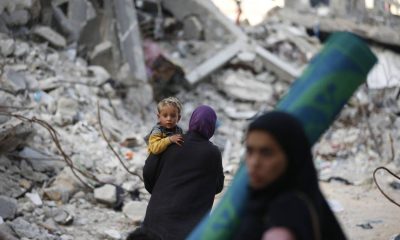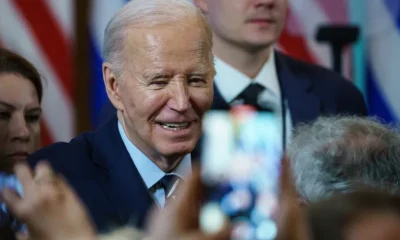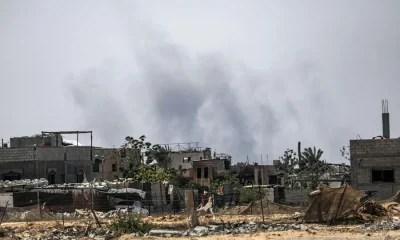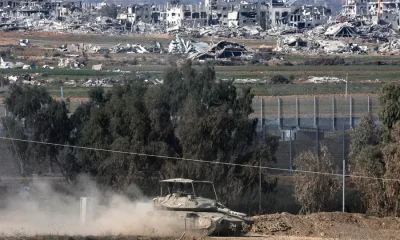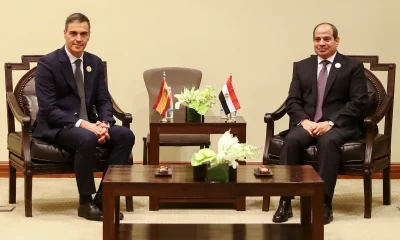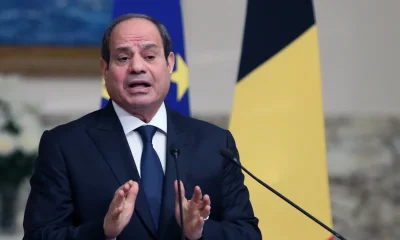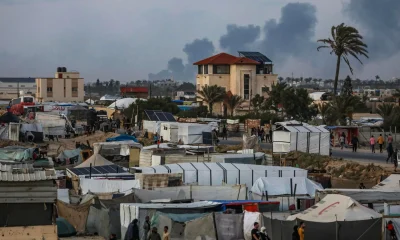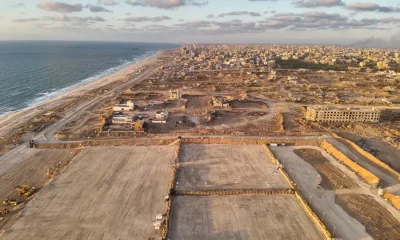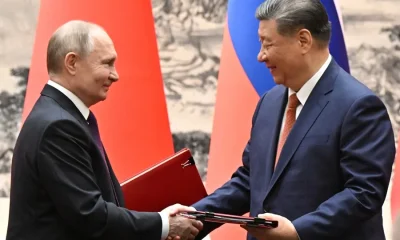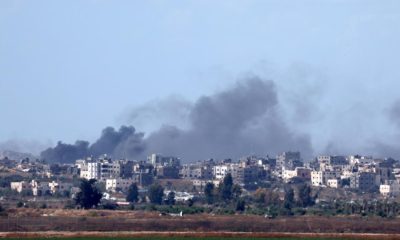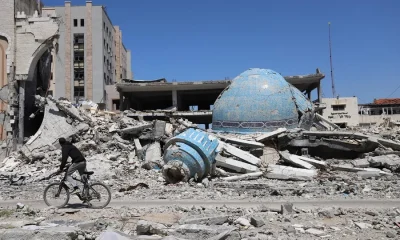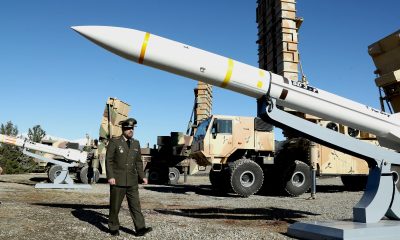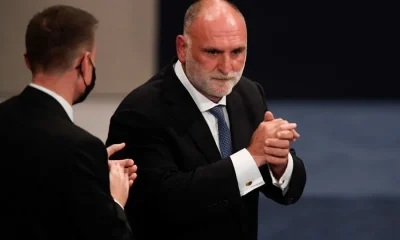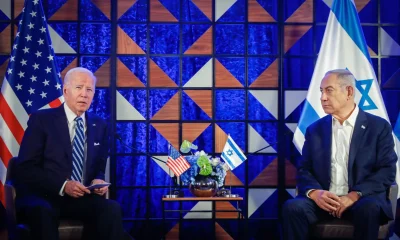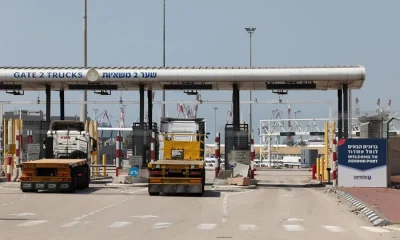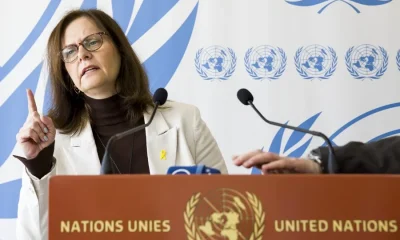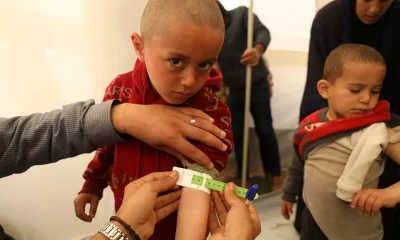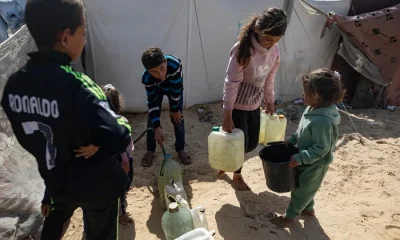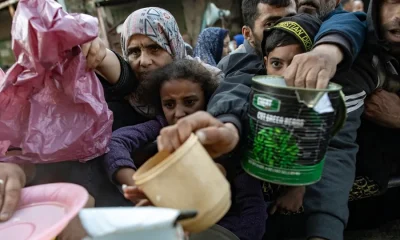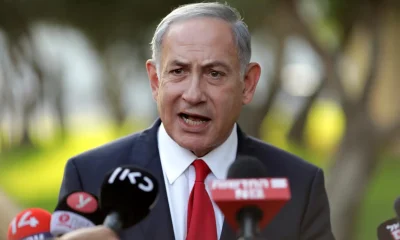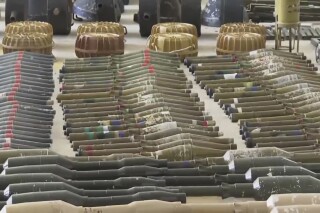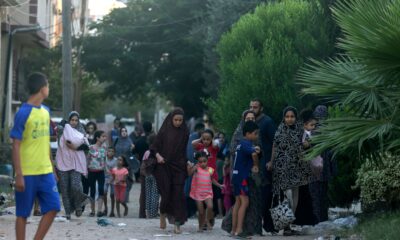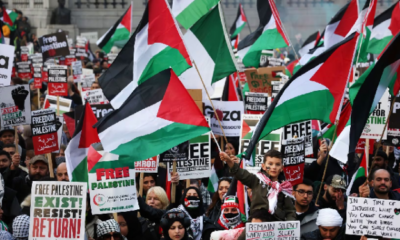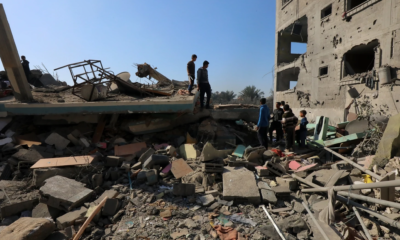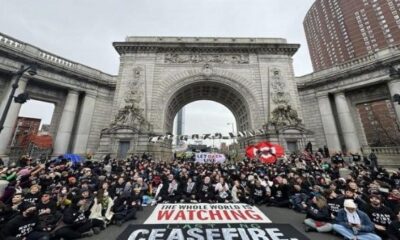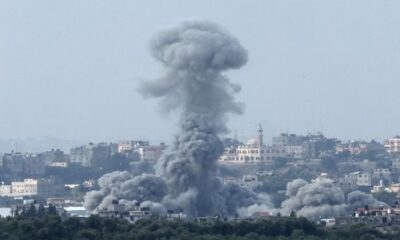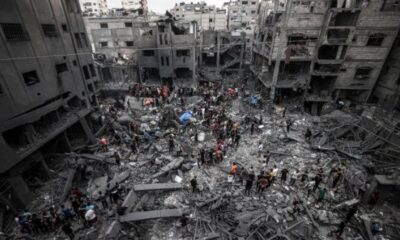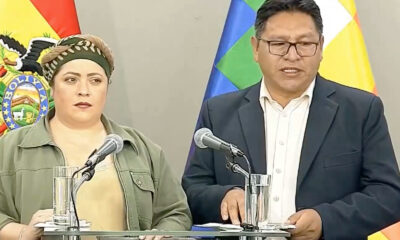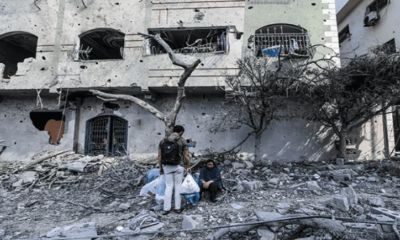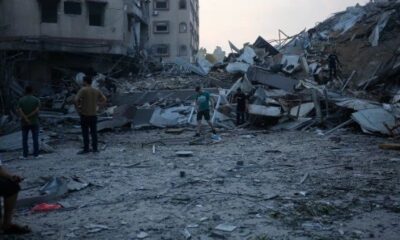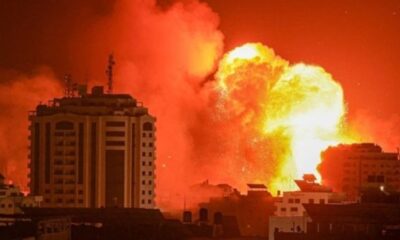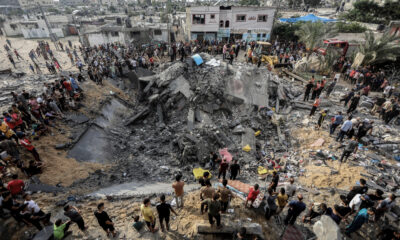International
The Israeli Army withdraws all its troops from the south of the Gaza Strip
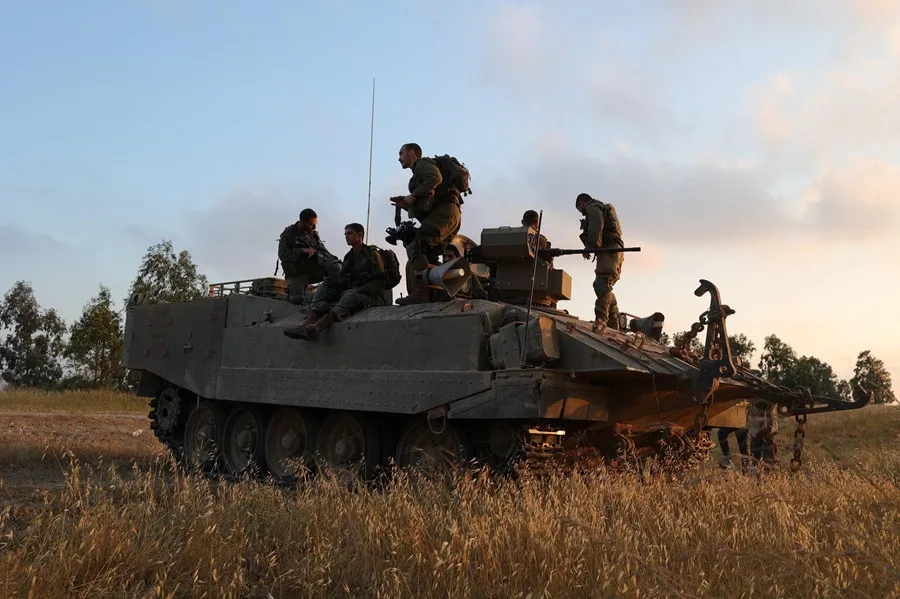
The Israeli Army withdrew all its ground troops from the south of the Gaza Strip last night, and there is only one brigade left in the enclave, a military source confirmed to EFE on Sunday.
The withdrawal comes after four months of fighting in the Jan Yunis area and six months after the beginning of the war between Israel and Hamas in Gaza, where more than 33,100 Palestinians have already died, most of them women and children.
Currently there is only one Israeli brigade left in the Palestinian enclave that is responsible for securing a corridor between the south of Israel and the Gaza coast, blocking the passage to the north of the Strip and facilitating operations in the center and north of the territory.
The two main hospitals of this southern city, Al Amal and Naser, have been devastated and inoperative after the siege of the Hebrew troops during these months under the thesis that there was the presence of alleged fighters in these complexes.
“Dozens of suspects have been delivered to Shin Bet and Unit 504 of the Directorate of Military Intelligence to be further interrogated,” the Army said in a statement on April 2.
Likewise, the Israeli Army reported on Sunday that, before its withdrawal, its combat units have carried out the last operations in the Al Amal neighborhood to finish “dismantling the terrorist infrastructure.”
In a message in X, former Israeli Minister of Justice Gideon Sa’ar criticized the withdrawal of troops, assuring that “the continuous decrease in the size of the Israeli forces” in Gaza “has distanced us from achieving the objectives of the war.”
Israel’s next target in Gaza seems to be the already announced military incursion into Rafah, in the south of the enclave, where 1.4 million displaced people live and there are still, according to the Army, four battalions from Hamas; an incursion opposed by the United States, Israel’s main military ally.
The official death toll in the Gaza Strip reached 33,175 this Sunday, six months after the start of the devastating Israeli war offensive.
More than 14,000 of those deaths, or 42%, are children, while 9,220 would be women, according to the same source. The total number of injured is 75,886, to which must be added about 7,000 bodies that are estimated to remain under tons of debris.
“The Israeli occupation committed 4 massacres against families in the Gaza Strip, causing 38 deaths and 71 injuries in hospitals during the last 24 hours,” the Gazazi Ministry of Health said today in a statement.
Egypt decided to increase the number of trucks with food, medical aid and emergency supplies for the Gaza Strip to at least 300 trucks per day as of this Sunday, the head of the Egyptian State Information Service, Diaa Rashwan, reported in a statement.
This decision, values the note. part of “the directives of President Abdelfatah al Sisi” to increase the humanitarian aid that enters the Palestinian enclave from the Egyptian side of the Rafah border crossing, the only one that does not control Israel, despite the fact that it inspects each cargo that enters from it.
In fact, Egypt denounced on numerous occasions the delays and traffic jams of trucks in northern Sinai due to Israeli inspections and rejections of certain products, which has forced the Arab country to launch aid by air to appease the humanitarian crisis resulting from the conflict.
According to the latest report of the United Nations Agency for Palestinian Refugees (UNRWA), “since the beginning of April, an average daily of 169 aid trucks have entered Gaza through the land crossings of Kerem Shalom and Rafah. This figure is still well below the operational capacity of both crossings and the target of 500 trucks per day.”
Israeli Prime Minister Benjamin Netanyahu reiterated this Sunday, when it is six months of war in the Gaza Strip, that there will be no truce agreement if the 133 hostages still in the hands of Hamas do not return home, adding that Israel will not give in to the “extreme demands” of the Islamists.
“I made (something) clear to the international community: there will be no ceasefire without the return of the kidnapped. It just won’t happen,” Netanyahu said today in a speech before meeting with his cabinet, and recalled that the Administration of U.S. President Joe Biden shares his same opinion.
He added that Israel does not oppose a truce agreement and blamed Hamas for “extreme demands” whose objective is to end the war “to guarantee its survival, its rehabilitation, (and) its ability to endanger” Israeli citizens and soldiers again.
This same night a massive anti-government demonstration has been called in Jerusalem, in which not only activists but also some of the relatives of the captives will participate, who blame Netanyahu for being more concerned about his political survival than about returning his family home.
The Israeli Minister of Defense, Yoav Gallant, assured on Sunday that Israel has completed preparations to face “any scenario” against Iran, which has been threatening for days to retaliate for an alleged Israeli attack on the Iranian embassy in Damascus (Syria).
Gallant made these statements after the meeting held today with the head of the Israeli Army Operations Directorate, Oded Basiuk, and the head of the Military Intelligence Directorate, Aharon Haliva, according to a statement from the authorities.
Israel is on alert after the attack that took place last Monday, April 1, against the Iranian embassy in Damascus, the capital of Syria, in which at least 19 people died, including the highest-ranking commander of the Iranian Revolutionary Guard, Mohamed Reza Zahedi.
Iran insisted, after celebrating Zahedi’s funeral yesterday, that this attack will not be “unpunished” and that there will be a response against Israel, whom he accuses of being behind him.
The Israeli press maintains that the Iranian authorities would be planning an attack with drones and cruise missiles against the Jewish State, but also against US targets in the region. Iran considers the White House to be “accomplice” of the attack.
The fear that this attack will reach Israeli territory begins to permeate its citizens, who in recent days have made food.
The concern of the international community that the conflict in Gaza, which is now six months old, goes beyond its borders has been constant during this time, due to the clashes that have taken place between Israel and some Arab countries, which their relationship is more tense than ever in recent decades.
The Lebanese Shiite group Hizbulá announced on Sunday that it has launched a flay of rockets against military bases on Israeli territory in response to an attack by the Jewish State against northeastern Lebanon.
“In response to the enemy’s attacks in the Bekaa region (northeast), the fighters of the Islamic Resistance targeted at 11.10 (local time, 8.10 GMT)” two military bases, one that of Yoav, and another identified as “Kila”, in the Golan Heights occupied by Israel, “with dozens of ‘Katyusha’ type rockets,” the movement said in a brief statement.
The Israeli Army announced that it attacked this morning Hizbulah’s anti-aircraft defense infrastructure in the Baalbek area, northeastern Lebanon, “in response” to a shooting down of an Israeli drone claimed by the Lebanese group after infiltrating its territory, something that happens on a daily basis.
Hizbulah, a close Iranian ally, and the Jewish State have been in intense border clashes since October 8, a day after the outsh of the Gaza War.
International
Trump urges Putin to reach peace deal

On Monday, U.S. President Donald Trump reiterated his desire for Russian President Vladimir Putin to “reach a deal” to end the war in Ukraine, while also reaffirming his willingness to impose sanctions on Russia.
“I want to see him reach an agreement to prevent Russian, Ukrainian, and other people from dying,” Trump stated during a press conference in the Oval Office at the White House.
“I think he will. I don’t want to have to impose secondary tariffs on Russian oil,” the Republican leader added, recalling that he had already taken similar measures against Venezuela by sanctioning buyers of the South American country’s crude oil.
Trump also reiterated his frustration over Ukraine’s resistance to an agreement that would allow the United States to exploit natural resources in the country—a condition he set in negotiations to end the war.
International
Deportation flight lands in Venezuela; government denies criminal gang links

A flight carrying 175 Venezuelan migrants deported from the United States arrived in Caracas on Sunday. This marks the third group to return since repatriation flights resumed a week ago, and among them is an alleged member of a criminal organization, according to Venezuelan authorities.
Unlike previous flights operated by the Venezuelan state airline Conviasa, this time, an aircraft from the U.S. airline Eastern landed at Maiquetía Airport, on the outskirts of Caracas, shortly after 2:00 p.m. with the deportees.
Interior Minister Diosdado Cabello, who welcomed the returnees at the airport, stated that the 175 repatriated individuals were coming back “after being subjected, like all Venezuelans, to persecution” and dismissed claims that they belonged to the criminal organization El Tren de Aragua.
However, Cabello confirmed that “for the first time in these flights we have been carrying out, someone of significance wanted by Venezuelan justice has arrived, and he is not from El Tren de Aragua.” Instead, he belongs to a gang operating in the state of Trujillo. The minister did not disclose the individual’s identity or provide details on where he would be taken.
International
Son of journalist José Rubén Zamora condemns father’s return to prison as “illegal”
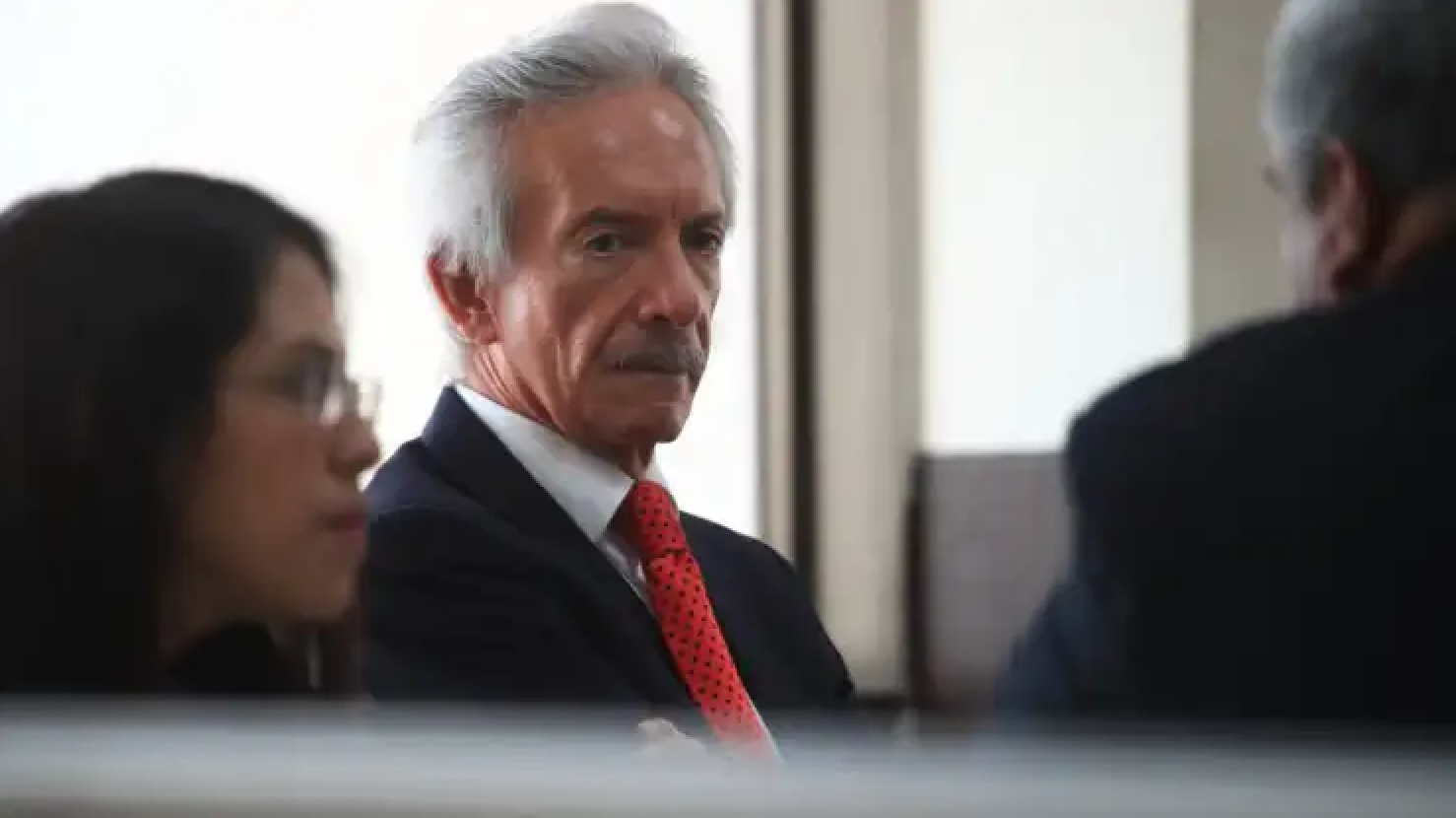
The son of renowned journalist José Rubén Zamora Marroquín, José Carlos Zamora, has denounced as “illegal” the court order that sent his father back to a Guatemalan prison on March 3, after already spending 819 days behind barsover a highly irregular money laundering case.
“My father’s return to prison was based on an arbitrary and illegal ruling. It is also alarming that the judge who had granted him house arrest received threats,” José Carlos Zamora told EFE in an interview on Saturday.
The 67-year-old journalist was sent back to prison inside the Mariscal Zavala military barracks on March 3, when Judge Erick García upheld a Court of Appeals ruling that overturned the house arrest granted to him in October. Zamora had already spent 819 days in prison over an alleged money laundering case.
His son condemned the situation as “unacceptable”, stating that the judge handling the case “cannot do his job in accordance with the law due to threats against his life.”
-

 International3 days ago
International3 days agoSon of journalist José Rubén Zamora condemns father’s return to prison as “illegal”
-

 International3 days ago
International3 days agoMiyazaki’s style goes viral with AI but at what cost?
-

 International1 day ago
International1 day agoTrump urges Putin to reach peace deal
-

 Central America2 days ago
Central America2 days agoPanama police clarifies that Interpol alert for Martinelli is still pending
-

 Central America1 day ago
Central America1 day agoU.S. Homeland Security Secretary urges Mexico to strengthen Guatemala border
-

 International2 days ago
International2 days agoDeportation flight lands in Venezuela; government denies criminal gang links
-

 Central America1 day ago
Central America1 day agoPanama grants Martinelli 72-hour extension to travel to Nicaragua
-
Central America4 days ago
Nicaragua revokes legal status of 10 more NGOs, bringing total to over 5,600














